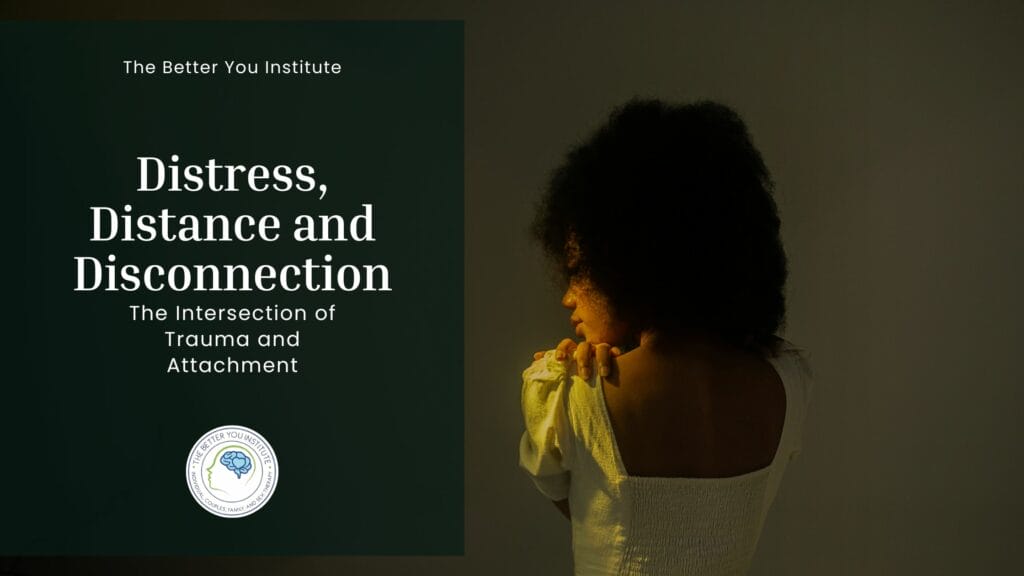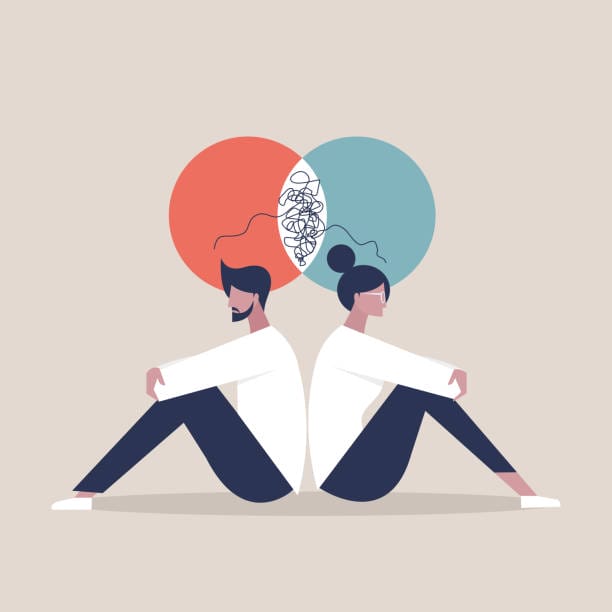You might not be able to see it right now, but you are deserving, worthy, and loved. Every person’s inward journey to happiness looks different. A common fear that people have is that they are not reaching their full potential. Reaching potential is when a person becomes the best they can be while achieving all their capabilities.
I want you to ask yourself a few questions. Take a moment. Be honest and vulnerable with yourself. When you are ready, either sit with or write down your responses to the questions:
- What might be preventing you from living your best life?
- What stops you from making changes?
- What goals do you have for yourself?
- Week, month, year, 5-year goals
- When was the last time you checked in with yourself?
- How do you approach challenges in your life?
- What do you have in your life right now that does feel fulfilling? How did you get there?
- When you think of your goals or dreams for the future, do you hear your own voice or someone else’s?
- Do you tend to do things out of obligation and loyalty, anger or spite, or joy and pleasure?
How did that feel for you to work through these questions? If you find yourself having a hard time, you are not alone. It can be challenging to take the time to check in and be honest with yourself. Since you are here reading this article, you are likely searching for guidance to help you create transformative change in your life. This article will help unlock some of the unanswered questions you have for yourself about how to get the most fulfilling life possible. You will receive guidance and tips to help you live your best life.
Table of Contents
What prevents you from enjoying life to the fullest?
Before we dive into creating your best life, we need to understand what prevents you from already having it. There can be multiple reasons why you are not living the life you want to be. For some people, it’s because they are searching for perfectionism, or maybe they fear the unknown. Here are some everyday things that can prevent you from living your best life:
- Surrounding yourself with the wrong people
- There is a saying that you are who you surround yourself with. If you surround yourself with supportive, loving, and accepting people, you are setting yourself up for success. When you surround yourself with judgmental, unmotivated, and envious people, you can pull yourself in the wrong direction.
- You don’t believe you deserve it
- Holding the negative belief that you are undeserving can influence your actions. Feelings of unworthiness often stem from childhood trauma, previous rejection, or shame.
- Negative self-talk
- The critical inner dialogue present when you experience negative self-talk can be linked to depression, low self-confidence, and anxiety. Negative self-talk can lead to self-sabotaging behaviors, ultimately preventing you from achieving your best life.
- Selling yourself short
- When you sell yourself short, you are limiting your potential and stunting self-growth. People often sell themselves short when they do not believe in their skills, abilities, and ideas. Imposter syndrome is when you feel like a fraud because you believe your skills and experience aren’t as good as others. Imposter syndrome is to be expected when you sell yourself short.
- Being too hard on yourself
- Being too hard on yourself creates negative self-talk and stems from the belief that you are not doing enough. Those who are too hard on themselves often have low self-esteem, become perfectionists to their detriment or both.
- Fear of judgment
- The fear of judgment can affect our relationships, friendships, jobs, social interactions, and sense of Self. The fear of judgment influences our self-worth, self-value, and self-trust.
- Negativity bias
- Negativity bias is when we hold on to negative thoughts instead of positive ones. This bias makes our brain register negative stimuli quickly and more efficiently and keeps us dwelling on these events. The negativity bias can impact our mental and physical health. Negative thinking can cause us to experience and feel unwanted emotions. These emotions can influence our behaviors, actions, and attitudes.
- Comparison
- Comparing yourself to others is the act of focusing on what other people are doing. Comparison is often the thief of joy. You are not intentional with your thoughts, behaviors, and actions because you focus on others.
- Perfectionism
- Perfectionism can be paralyzing regarding self-esteem, decision-making, and self-reliance. People who hold perfectionistic tendencies often hold the belief that if we live, look, and act perfect, we can minimize or avoid the pain of blame, judgment, and shame—those who use perfectionism struggle with a sense of control.
- Fear of failure
- The idea of failing can be very sensitizing to some people. The fear of failure often stops people from doing what they want. The fear of failure often leads to avoidant behaviors to prevent you from engaging in an activity or scenario that holds the potential for an unsuccessful event.
- Fear of success or getting the very thing you want
- The fear of success can lead people to behave similarly to those who fear failure. People often avoid achievement because they don’t believe they can sustain it.
- Blind loyalty
- Being blindly loyal to a person or cause, even when they misbehave or do something dishonest, can prevent you from living your life to the fullest. Blind loyalty can have a person remain loyal to a person who misbehaves or does something dishonest. This type of loyalty can create unhealthy dynamics in relationships.
- Unhealed Trauma: Numbing out/Becoming robotic
- Unhealed and unresolved trauma has the potential to create a lack of trust and difficulties with being vulnerable. Dissociation is a trauma response where a person disconnects from their thoughts, feelings, memories, and sense of self. Those who have unhealed trauma can become robotic and numb out through dissociation.
Reprogramming subconscious beliefs
Every single person you see has some type of subconscious belief about themselves. These beliefs often go unnoticed and are created and stored when we are children. A belief is a thought that has been repeated over and over again that becomes integrated into actions. Our belief system becomes the filter through which we view everything, including ourselves.
The subconscious can’t differentiate between a truth and a lie. Your brain will look for things to support your beliefs. If you keep saying, “I am so unlucky, I’m unworthy, good things don’t happen,” you will believe that and then that belief system will influence your actual reality. Not just how you perceive reality but also what you attract. This phenomenon is called a self-fulfilling prophecy.
Positive Affirmations
If you start saying affirmations to yourself, even if you don’t believe them, it will filter the lens through which you view yourself. “I am worthy. Good things do happen to me. I’m excited for what is coming, and opportunities present themselves to me.” Changing the language will change what you believe. You hold the power to create transformative change in your life.
Journaling with a focus on positivity
Positivity journaling helps you take the first step in shifting your life for the better. The best thing we can do for ourselves is to honor the grateful things in life. A research study showed that if people practice gratitude 3 times a day for 4 days in a row, their immune systems increase by 50%. The power of gratitude is not just on our mindset, but it can impact our physiology (health, well-being, sleep, and decrease in anxiety/depression). The idea is not to search for more but to make the life that you currently have feel as good as possible.
Reprogramming your subconscious starts with addressing the core beliefs you hold about yourself and challenging them through the change of language, use of affirmations, and checking in with how you treat yourself.
Steps to live your best life
- Be clear in your vision
- When thinking about your best life, you must be clear in your vision. You can gain clarity in your vision by setting specific goals and intentions.
- Check-in with yourself and try to be vulnerable and courageous in setting goals. Maybe you have secret dreams that you have struggled to admit.
- Dare to dream big and set big goals. You can use vision boards to spark these big goals.
- You can also sit down and visualize what you want to achieve. Visualization primes your subconscious to reach goals by filtering out unwanted information by seeking opportunities
- When thinking about your best life, you must be clear in your vision. You can gain clarity in your vision by setting specific goals and intentions.
- Remove fear and doubt
- The next step is to remove fear and doubt from your life. Believe that you are worthy of unconditional love and acceptance. Ways to remove fear and doubt include therapy, journaling, practicing self-compassion, and trusting yourself. These different acts will assist you in reprogramming the subconscious that holds fear and doubt.
- Align your behavior
- This step is all about changing your actions to align with your vision. You can start to align your behavior by taking action, stepping outside of your comfort zone, and looking at how you are behaving. How you treat yourself is a self-reflection on your beliefs. Aligning your behavior to your vision of yourself will help you step into the character of your future self.
- Overcome tests and challenges
- This step is crucial because when tests and obstacles become present, we want to respond and not react. Responding focuses on what you can control rather than what you cannot. This step will help you understand how well you overcome obstacles, rejections, and tribulations.
- Learn from mistakes
- Learning from mistakes is essential because you can adopt a growth mindset. Mistakes are a part of your journey because of the lessons learned along the way. You can learn from uncomfortable experiences in life, and this discomfort often leads to growth. Having a growth mindset allows you to embrace life’s challenges, empowering you to continue to learn and grow.
- Embrace gratitude
- Embrace all of the good things you have in your life. This act will help you retrain the brain to be more grateful. Embracing gratitude over time will help you gain a new perspective while changing how you speak to yourself.
- Connect with others
- As human beings, we are social creatures. Connecting with others can be healing, empowering, and bring increased happiness. When connecting with others, it presents the opportunity to be your authentic self. Connecting with others involves creating an emotional and social bond. These bonds can help people feel like they belong and promote wellness.
- Turn envy into inspiration
- Envy comes from a scarcity mindset. People can be fearful that if someone in their life succeeds, then there won’t be enough to go around for them. Envy can also come from insecurities in ourselves. Either of these reasons can result in using envy to show us what we want and what still needs healing. People often have a hard time sitting in their feelings and acknowledging the emotion of envy. People often deny feeling envious, and instead, they pass it on as judgment or criticism.
- For example, you are scrolling through Instagram, and you see a person quit their job and travel the world. You say to yourself, “That’s so irresponsible, cringy, and weird.” At that moment, you are judging the person you see on Instagram. I would want you to ask yourself if that judgment could really be envy. You see this person being able to go after what they want unapologetically. Do you think you would also like to live unapologetically yourself?
- Checking yourself when you are displaying judgment will help you see what needs healing and what you want and turn it into inspiration.
- Inspiration tells us you have it, and I can have it too. Through inspiration, we can look to other people’s love, joy, and success and know that it is also possible for ourselves.
- Challenge yourself to form the habit of celebrating other people because, through celebration, you believe you can have what you want too. Showing that you are happy for other people’s success, you are showing that you are not threatened by it, and that comes from a really abundant mindset.
- Envy comes from a scarcity mindset. People can be fearful that if someone in their life succeeds, then there won’t be enough to go around for them. Envy can also come from insecurities in ourselves. Either of these reasons can result in using envy to show us what we want and what still needs healing. People often have a hard time sitting in their feelings and acknowledging the emotion of envy. People often deny feeling envious, and instead, they pass it on as judgment or criticism.
- Trust in the process
- Trusting the process means surrendering and letting go of a sense of control. When we hold on so tightly, we develop desperate energy, which keeps us from being open to receiving. Trust the process of change.
- Take care of yourself
- Taking care of yourself is necessary to help you achieve your best life. Taking care of yourself involves self-care, checking in with yourself, self-compassion, regular movement, and taking the time to improve overall wellness. Taking care of yourself is important because it will help you maintain a better balance and lead you toward a better life.
These steps are taken from a hugely popular self-development practice that helps transform your life for good. These steps are written by self-development coach and ‘Queen of Manifesting’ Roxie Nafousi. These steps from her book provide the essential guide to anyone and everyone wanting to feel more empowered in their lives. Roxie is a respected inspirational speaker who helps support and empower people through coaching. Life coaching can help people improve their quality of life, and even though coaching intersects with therapy, it is quite different. Life Coaching can help you improve skills by focusing on setting and achieving personal and professional goals. Therapy is different because the therapeutic process focuses on changing deep-seated beliefs by understanding the past and overcoming traumatic events to help improve emotional and mental wellness.
Starting the process
You deserve to enjoy the life that you want. It is important to ask yourself what you believe is in the way of achieving your desired life. You have limitless potential that is ready to be unlocked. Therapy can be a valuable way to assist you with creating a vision for your desired life where you can explore and change deep-seated beliefs about yourself. If you want to explore your future best life or have questions about starting the process, schedule an appointment at The Better You Institute with one of our Philadelphia therapists. Call us today at 267-495-4951 to set up your appointment.
Meet The Author:

Claire Savage, M.Ed
Professional Counselor
Claire Savage, M.Ed, a Professional Counselor and Practicum and Intern Liaison, is known for her caring and open-minded nature. Her background as a first-generation Irish American has shaped her focus on identity development in therapy, helping clients understand their passions, purpose, and values. Drawing from her Division I Rowing experience at Temple University, Claire emphasizes the importance of mental health and the role of failure in personal growth. She approaches therapy like a puzzle, using person-centered, experiential, somatic, emotionally focused, and cognitive behavioral approaches to help clients gain new perspectives and control over their lives. Claire holds a Bachelor’s and Master’s in Counseling Psychology from Temple University. Passionate about Philadelphia, she enjoys exploring coffee shops, attending workout classes, and spending time with loved ones. Claire is dedicated to guiding clients on their wellness journey.
Learn more about Claire Savage ⇒







